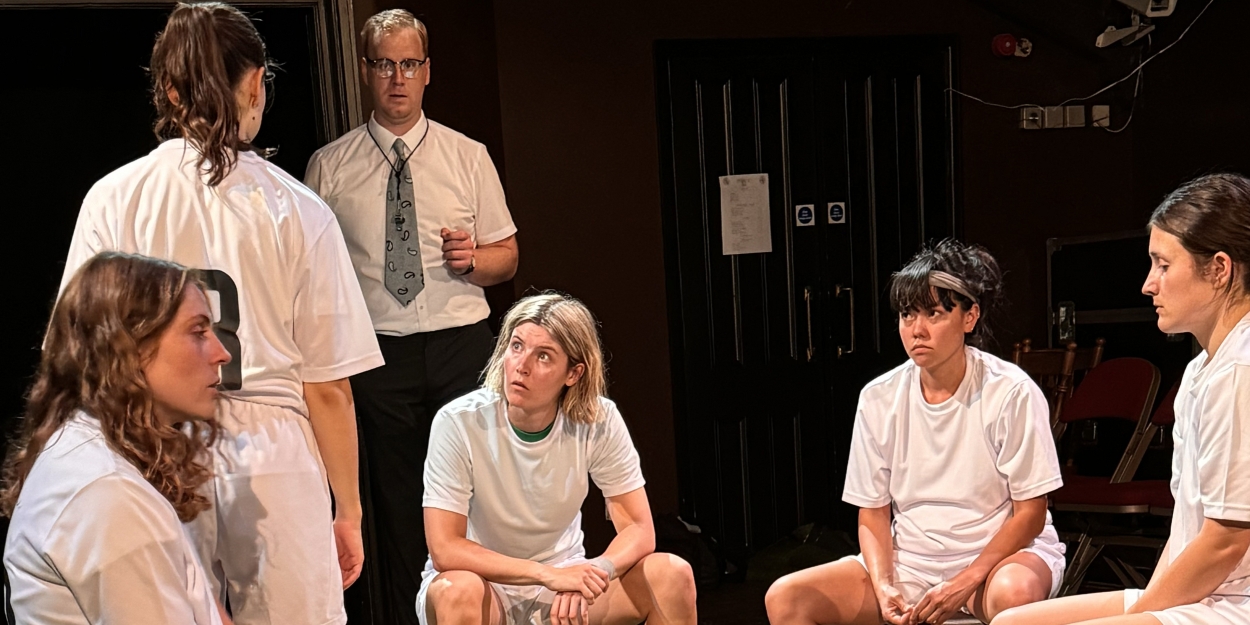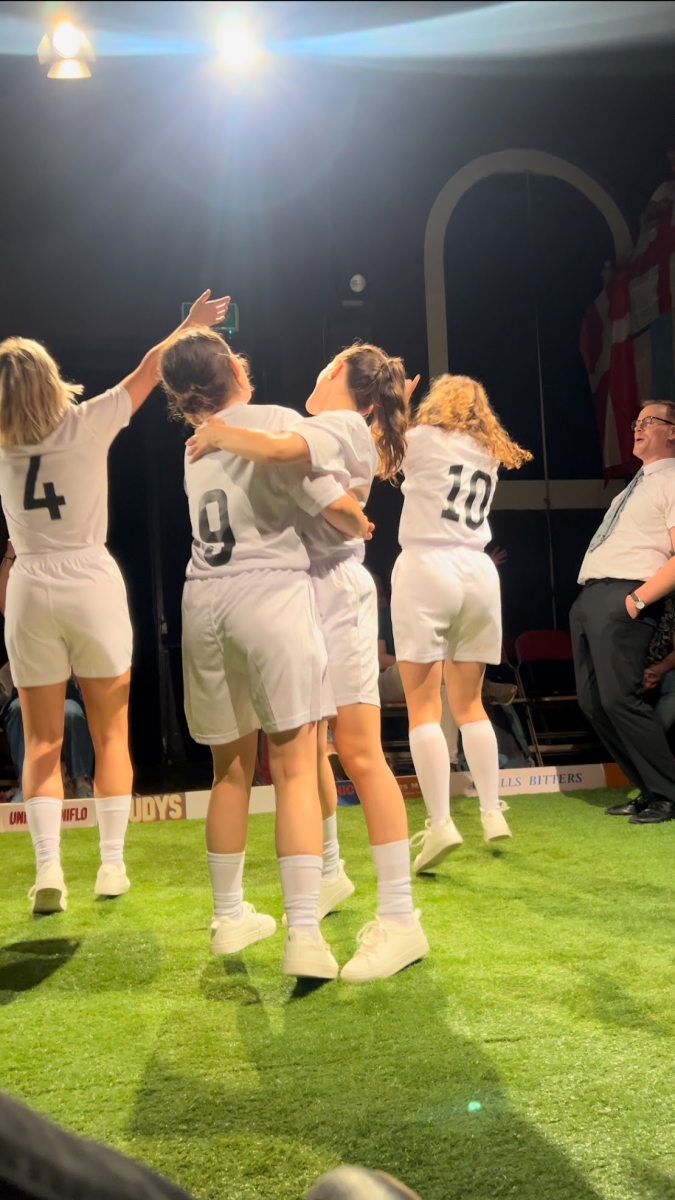Review: THE LOST LIONESSES, The Space Arts Centre
A new play about an old problem - women's exclusion from 'a man's world'

 With The Lionesses about to join Queens Victoria and Elizabeth in having a London railway line named in their honour, it will surprise many to learn of the struggle so many women (and one man) faced on the long road to such recognition.
With The Lionesses about to join Queens Victoria and Elizabeth in having a London railway line named in their honour, it will surprise many to learn of the struggle so many women (and one man) faced on the long road to such recognition.
With the Women’s Suffrage movement in full flow and emancipation of workplaces forced by war, women’s football was popular in the immediate post WW1 period, the leading club, Dick, Kerr Ladies, playing to huge crowds around the country. With thousands of women playing football, its future looked bright. Which was, of course, the problem.
The petit bourgeois men who controlled sport (those who would ban a rugby union player for life for accepting a pair of boots from a sports shop, or bar an athlete from The Olympics if he or she had their train fare to the trials covered) saw this development as a threat. Spouting phony-baloney nonsense about women’s health, seemingly blind to the fact that women played tennis, raced bikes (Beryl Burton has a claim to be our country’s greatest ever sportsperson) and were employed in back-breaking physical work, the FA banned women from use of the facilities at any of their associated clubs, driving women’s football underground. Astonishingly, the ban was to last a half century, from 1921 until 1971.
Women played of course - the game’s global popularity is rooted on its simplicity and low entry costs, so it can never be stopped entirely - but they couldn’t organise properly and faced a near relentless hostility. Cue bus driver, iconoclast and coach, Harry Batt, who had fought for the Republicans in the Spanish Civil War and now had the FA in his sights. He took a team of women, some still at school, first to Sicily for the qualifiers and then to Mexico, the year after Bobby and Pele swapped shirts and Carlos Alberto scored that goal, to play as the British Independents in an unofficial World Cup. This is their story.

Playwright, Nicole Lockwood-West, is the niece of one of the players and her close understanding of the time and place comes through this ensemble piece. Working class girls, they had never flown in a plane (I didn’t until I was 19) and the shock of the Mexican heat hit them hard, as did the Argentine and Mexican players, older, stronger and used to a more cynical game.
The cast - Lizzie Coles, Mhairi Boyle, Charlotte Brown, Molly Walker and Amie Butler - find individual personalities on Maeve Reading’s square set, reminiscent of Red Pitch recently @sohoplace. They move well, but their best work is done in capturing the circumstances surrounding the matches.
The British public, their employers and football’s administrators were as hostile as can be, but these footballers stand up to them. That antipathy all arises from their chosen pastime. There’s no mention of the dangers inherent in the volatility of Mexican society or of the risks to naive young women abroad under minimal supervision. Nobody knew the word safeguarding back then - in that very different world, they were only hurt on the field.
The other shock on arrival in Central America was the size of the crowds, sellouts and near sellouts in the storied Azteca Stadium. ‘Las Chicas de Carnaby Street’ instantly acquired cult status, and a rather more benign celebrity status than would be the case today. They were flattered by the press attention and the gifts from admirers, and much moved by the kindness of hotel staff and others, a marked contrast to how they were treated at home.
The Lost Lionesses’ story is told with wit and charm and if it loses a little energy in the last ten minutes or so when attention shifts to Harry Batt’s ostracising by the FA and the nascent WFA and his near nervous breakdown as a result, that’s forgivable in the context of much that goes before.
I’m sure I won’t be alone in having raced to Wikipedia on the bus home and was pleased to read that something approaching recognition for these pioneers is now filtering through, though there needs to be more. This play will have a role to play in that rehabilitation and deserves a wider audience - and, boy oh boy (or should that be girl oh girl) wouldn’t it make a super film.
The Lost Lionesses at The Space until 20 July
Photo Credits: Danny Milwain
Reader Reviews
Videos

